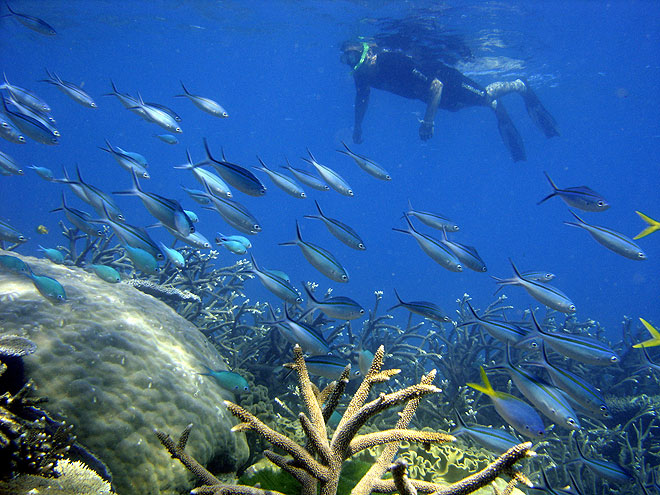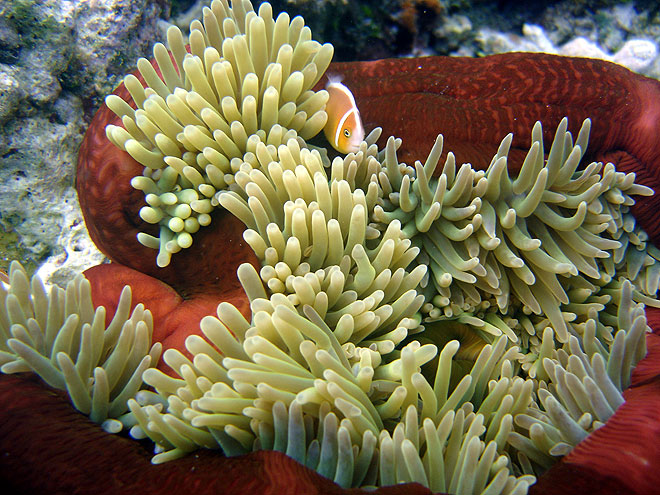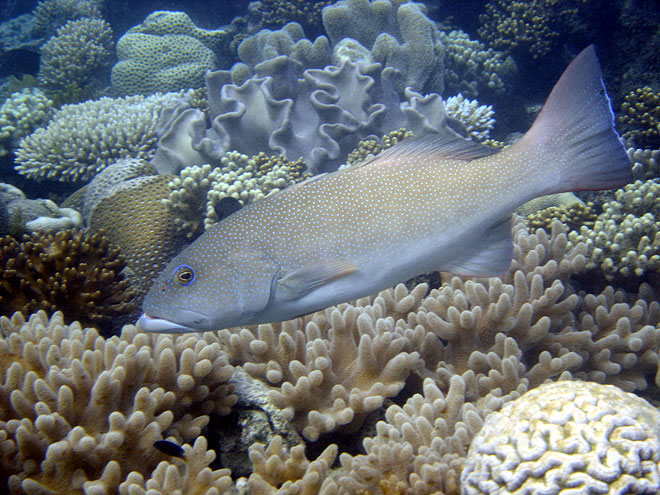For a fun and accessible way to see rare and colourful creatures in a pristine coral environment, that’s also the largest in the world, there’s arguably no better activity than snorkelling on the Great Barrier Reef.
In fact, the only requirements for snorkelling are a reasonably good level of fitness and a moderate sense of adventure. And there’s many tours in the area that will take you to any number of reef destinations, so all one has to do is put on a mask, plunge in and enjoy the show.

 Tours, which can be organised through Thala, take you to islands or sandy cays, so you can walk straight in off the beach instead of jumping off a boat. There’s also a number of buoys at sites located a short distance from each other, which gives you space to rest if you’re not keen to get back on the boat in a hurry.
Tours, which can be organised through Thala, take you to islands or sandy cays, so you can walk straight in off the beach instead of jumping off a boat. There’s also a number of buoys at sites located a short distance from each other, which gives you space to rest if you’re not keen to get back on the boat in a hurry.
For first time snorkellers, fear not. Snorkelling on the Great Barrier Reef is a simple activity, as not only can companies provide you with ‘float coats’ if need be, many of the reef sites are in shallow waters. Furthermore, the water’s warm up here! So it’s likely you won’t need a wetsuit, and even if you do you’ll feel comfortable.
What can one expect to see snorkelling on the Great Barrier Reef?

When gliding through the reef’s translucent waters, one could run into any number of 1,500 fish species. Some of these include the clown fish, red bass, red throat emperor, maori wrasse and pipe fish. There’s also over nine different species of sea horse to be found.
Furthermore, there are over 400 different type of corals, both hard and soft, and 500 species of marine algae on the reef. Then there’s creatures such as green turtles, manta rays and moray eels, which you may be lucky enough to cruise past on your journey through this chromatic wonderland.

Another remarkable way to enjoy snorkelling on the Great Barrier reef is by paying attention to the light as it illuminates the world below. Each coral needs sunlight to photosynthesise and feed, so take time to observe their behaviour as they reach skyward to grasp their fair share in their bid for survival.
